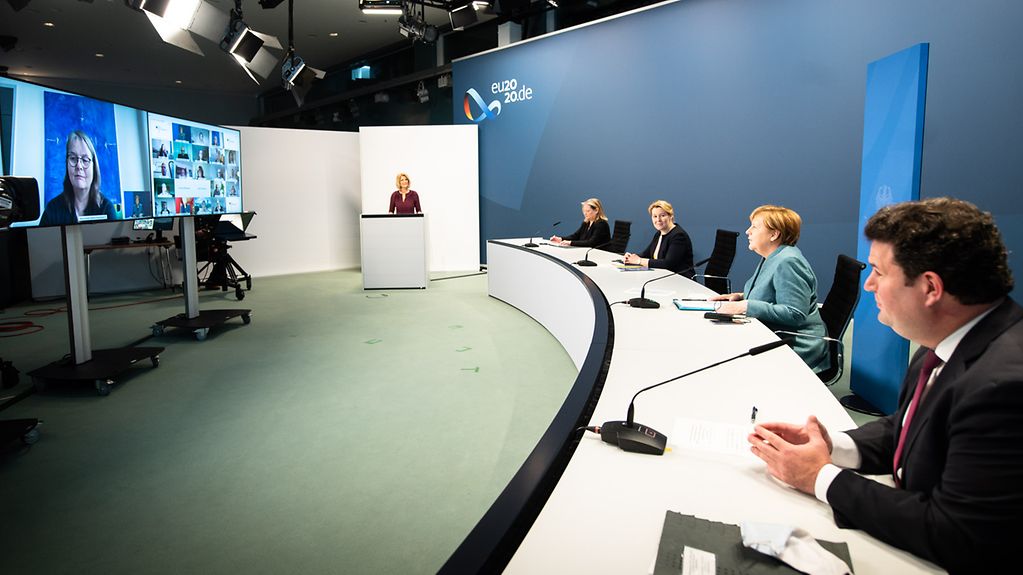Chancellor's video conference
The COVID-19 pandemic has spotlighted the importance of nursing in a very special way. At the beginning of the top-level talks with members of the Concerted Action on Nursing scheme, Chancellor Angela Merkel stressed that she wanted to thank everyone in the profession most warmly for their exceptional dedication.
2 min reading time

The Chancellor thanked everyone in the nursing profession for "their absolutely exceptional dedication".
Photo: Bundesregierung/Steins
They have helped ease the hardship as far as possible for the sick, for people in need of care, and for people with disabilities, she declared. The Chancellor pointed out that a lot has been expected of people during the pandemic. The contact restrictions, in particular, have been a great hardship for many people in need of care. There is agreement, however, that every infringement of fundamental rights must be properly explained and justified, and that any infringement must be imposed for a limited period only.
Vulnerable groups must be protected, not excluded
But the restrictions served and are serving to protect society, in particular those who are most at risk, underlined Angela Merkel. The protection of vulnerable groups must be a special concern, but this must not lead to certain sections of society being marginalised. Everybody must be able to take part equally in the life of society.
"Today, we know more about the virus, and we can take a more targeted approach," said Angela Merkel. But the rising numbers of new cases also demonstrate that if we don’t use the knowledge we have, extremely difficult situations can emerge again very quickly.
The new rapid tests that are now available give grounds for hope on one front. The Federal Ministry of Health’s new testing regulations concentrate on using these in nursing and care facilities. It is hoped that they will make as much use as possible of the tests.
Improving working conditions in nursing
One major challenge is to protect nursing staff from excessive workloads and to improve their working conditions. The Chancellor said she is happy that the collective bargaining agreement for public sector workers makes nursing staff a special priority. "Words of thanks are one thing, actions another," reaffirmed Angela Merkel. During this legislative period, a great deal has been initiated. "It is quite clear that this has not resolved all the problems," said the Chancellor, "but much has been achieved".
Digitalisation can, of course, make an important contribution to improving working conditions. Germany is not necessary "a front runner" in this context, admitted Angela Merkel. She does, however, believe that linking up nursing and care facilities to the telematics infrastructure could help, and called on all parties to have the courage to take this step into unknown territory.
The Concerted Action on Nursing brings together federal and state governments as well as many other partners: nursing and training associations, the associations of nursing/care facilities and hospitals, the churches, long-term nursing care insurance schemes and health insurance schemes, associations of affected individuals, the professional body, the Federal Employment Agency and employers’ and employees’ representatives. Together, they have reached a large number of agreements that are now to be implemented step by step.